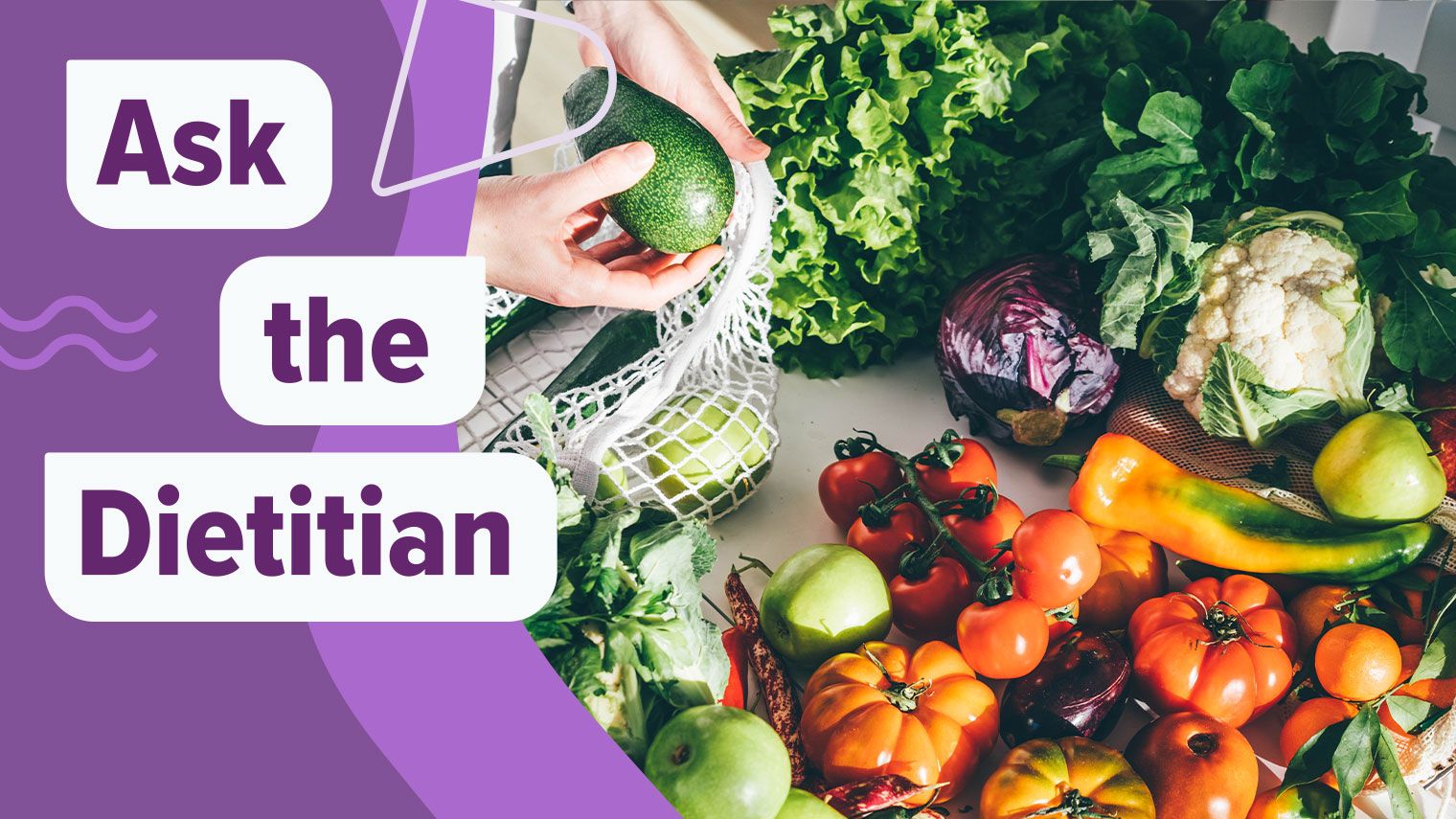Ask the Dietitian: How Does a Plant-Based Diet Work for Psoriasis?
September 30, 2022
Content created for the Bezzy community and sponsored by our partners. Learn More

Laura Krebs-Holm, a dietitian living with psoriasis, digs into what the research says about a plant-based diet for psoriasis.
Plant-based, whole-food diets are very popular right now, and for good reason. They tout some real health benefits, like reducing your risk for cancer, heart disease, diabetes, and cognitive decline.
Kim Kardashian credits a plant-based diet with helping her psoriasis. She stated she had terrible psoriasis and PsA flares after following an extreme diet to fit into her 2022 Met Gala dress. Kardashian cut out carbs drastically and increased her meat intake. Once she switched back to a plant-based diet, she claims her symptoms improved.


What is a plant-based diet?
A plant-based diet is a pattern of eating that relies on plants as a main source of nutrition. This includes fruits, vegetables, grains, legumes, nuts, seeds, oils, and their by-products like flour. However, it’s not necessarily a vegan or vegetarian diet. Meat, poultry, fish, eggs, dairy, and honey are allowed in limited quantities, but they don’t comprise a significant part of the overall diet.
What is inflammation?
Inflammation is a natural process in the body, and it’s not always bad. Inflammation can signal the body’s immune response to an illness, germs, or an external injury. In this way, inflammation can be part of the healing process.
Alternatively, inflammation can be caused by or tied to a medical condition. It can manifest as redness, heat, pain, or swelling. Arthritis is an example of inflammation that impacts the joints. Chronic inflammation can lead to long-term damage.
We know that certain foods can increase or decrease inflammation in the body. If you have psoriasis, eating anti-inflammatory foods can help manage your symptoms. You’ll also want to avoid foods that have been linked to increased inflammation.
Plant-based evidence on psoriasis
There haven’t been a lot of studies on plant-based diets and psoriasis specifically. Still, there have been studies showing benefits for other autoimmune-related diseases like rheumatoid arthritis and inflammatory bowel disease.
Although the plant-based diet consists primarily of fruits and vegetables, consuming dairy and fish in limited quantities can be beneficial.
A 2019 study found that milk and dairy products produced anti-inflammatory effects in both healthy people and those with metabolic abnormalities. A 2017 review found that out of 52 clinical studies, dairy had an anti-inflammatory effect on every group except for one: those that were allergic to cow’s milk.
Additionally, fish that are rich in Omega-3 fatty acids are also very good at fighting inflammation.
Plants and an anti-inflammatory diet
At the core of a plant-based diet is a large variety of fruits, vegetables, nuts, seeds, and whole grains. These foods are very good at reducing inflammation.
Berries and cherries are packed with antioxidants and reduce inflammation. Blueberries, strawberries, raspberries, and blackberries are all rich in pigments that decrease inflammatory markers in the blood.
Broccoli and other cruciferous vegetables like cabbage, Brussels sprouts, and kale are also rich in antioxidants like sulforaphane which has been shown to decrease inflammation.
Mushrooms of all types have been linked to decreased inflammation due to certain compounds, and avocadoes are linked to healthy fats and lowering inflammation.
Olive oil is another all-star of the anti-inflammatory diet, and it’s vegan. The health benefits of olive oil have been discussed for many years. It’s been shown to reduce inflammatory markers that are elevated in people with psoriasis, like C-reactive protein or CRP.
Plant-based foods that may be pro-inflammatory
It’s important to note that there are many plant-based products on the market that contain inflammatory ingredients like processed oils and sugar. Many meat and dairy alternatives are heavily processed, which can cause inflammation.
Even plant-based food products like baked goods may still contain refined flours and sugar, which may also ramp up inflammation. Like their conventional counterparts, they’re best enjoyed in moderation.
The takeaway
While there are currently no studies exploring the relationship between psoriasis and a plant-based diet, some evidence suggests it may be helpful. Talk with your doctor if you’re interested in changing your diet.
You don’t have to eat a completely vegan diet to gain the benefits. Just include plenty of foods that are both anti-inflammatory and plant-based in your regular diet, like fruits, vegetables, whole grains, nuts, and seeds.
Be mindful of heavily processed foods, whether they are plant-based or not, as many of them can be inflammatory and may impact your psoriasis.
Medically reviewed on September 30, 2022
12 Sources


Like the story? React, bookmark, or share below:
Have thoughts or suggestions about this article? Email us at article-feedback@bezzy.com.
About the author